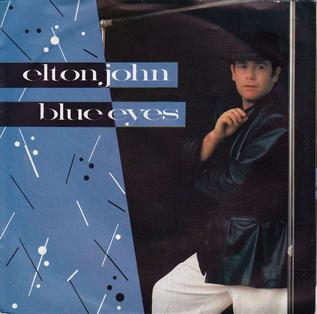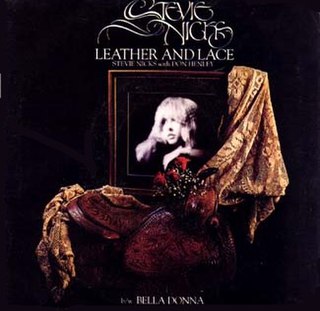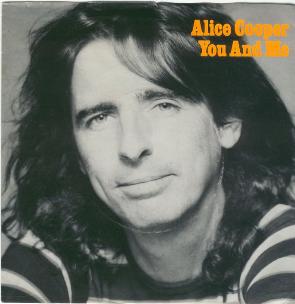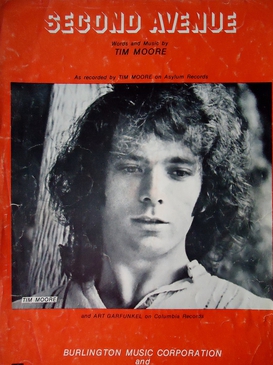Nicholas George Gilder is a British-Canadian musician who first came to prominence as the frontman for the glam rock band Sweeney Todd. He later had a successful solo career as a singer/songwriter.

"You're All I Need to Get By" is a song recorded by the American R&B/soul duo Marvin Gaye and Tammi Terrell and released on Motown Records' Tamla label in 1968. It was the basis for the 1995 single "I'll Be There for You/You're All I Need to Get By" from Method Man and Mary J. Blige.
Sweeney Todd is a Canadian glam rock band formed in Vancouver in 1975. They released two albums, the first with original lead vocalist Nick Gilder, who soon left for a solo career, and the second with his 16-year-old replacement Bryan Adams, who later enjoyed international success as a solo artist.

"Montego Bay" is a song co-written and performed by Bobby Bloom about the city in Jamaica of the same name. The song was a top ten hit for Bloom in the Fall of 1970 on both sides of the Atlantic. It reached No. 3 on the UK Singles Chart, No. 5 on the Canadian RPM 100 Singles Chart, No. 7 on the Australian Go-Set Singles Chart and No. 8 on the US Billboard Hot 100. The song was co-written and produced by Jeff Barry. In the master tape of the song, Bloom breaks into a chorus of "Oh, What a Beautiful Mornin'" at the end of the recording. The song features a whistler, as well as Jamaican instruments in a calypso style.

"More Love" is a 1967 hit single recorded by the American soul group The Miracles for Motown Records' Tamla label. The single, included on the group's 1967 album Make It Happen, later reissued in 1970 as The Tears of a Clown. Kim Carnes's 1980 cover of the song reached the Top 10 of Billboard's Adult Contemporary and Hot 100 charts.

"Show and Tell" is a popular song written by Jerry Fuller and first recorded by Johnny Mathis in 1972. This original version made it to #36 on the Easy Listening chart.

"Blue Eyes" is a song performed by British musician Elton John with music and lyrics written by John and Gary Osborne. It was released in 1982 as the UK lead single from John's 16th studio album, Jump Up! (1982). It was released as the album's second single in the US. It hit No. 8 in the UK; in the US, it spent three weeks at No. 10 on the Cash Box chart, went to No. 12 on the Billboard Hot 100, and spent two weeks at No. 1 on the Billboard AC chart. John performed this song often in his concerts until 2012.

"Keep on Singing" is a 1973 song composed by Danny Janssen and Bobby Hart, and was originally recorded by Austin Roberts from the album Austin Roberts. It was released as a single on Chelsea Records and reached No. 50 on the U.S. Billboard Hot 100 and No. 39 on the Cash Box Top 100. In Canada it reached # 79. "Keep on Singing" was best known as a hit single by Helen Reddy in 1974.

"Lonely Night (Angel Face)" is a song written by Neil Sedaka. The song was first recorded by Sedaka and appeared as a track on his 1975 studio album, The Hungry Years. The following year the song was made popular when covered by the pop music duo Captain & Tennille, who took their version to number 3 on the Billboard Hot 100.

"Love Ballad" is a song by R&B/Funk band L.T.D. Jeffrey Osborne is the lead singer.

"I Believe You" is a love ballad composed by Don and Dick Addrisi which was a 1977 single for Dorothy Moore; taken from her self-titled Dorothy Moore album. "I Believe You" reached #5 R&B and crossed over to the US Pop Top 30 at number 27. The track also reached number 20 in the UK.

"Leather and Lace" is a song performed by American singers Stevie Nicks and Don Henley. It was released on October 6, 1981, as the second single from Nicks' solo debut studio album Bella Donna (1981).

"Cupid" is a song by American singer Sam Cooke, released on May 16, 1961. It charted at number 17 on the Billboard Hot 100 and number 20 on the Hot R&B Sides chart; the track performed best in the United Kingdom, peaking at number seven on the UK Singles Chart. The song is featured on Cooke's greatest hits album, The Best of Sam Cooke (1962). Cooke's producers had asked him to write a song for a girl they had seen on a Perry Como TV show—but once they heard her sing, they kept "Cupid" for Cooke himself.

"You and Me" is a song by Alice Cooper, released in 1977 as the lead single from his album Lace and Whiskey. The song is a soft rock ballad, reaching number nine on the US Billboard Hot 100 and number eight on the Cash Box Top 100 in the summer of 1977. The song reached number three in Canada and number two in Australia, where it is ranked as the 13th biggest hit of 1977.

"Always and Forever" is an R&B song written by Rod Temperton and produced by Barry Blue. It was first recorded by the British-based multinational funk-disco band Heatwave in 1976. Released as a single on 3 December 1977, the song is included on Heatwave's debut album Too Hot to Handle (1976) and has been covered by numerous artists, becoming something of a standard.

"Do I Love You" is a song co-written and recorded by Paul Anka, from his 1972 eponymous LP. Released as an advance single in late 1971, "Do I Love You" reached number 14 on the Easy Listening Singles charts of both the U.S. and Canada, number 16 on the Canadian Pop chart, and was a modest hit on the U.S. Hot 100 as well. As with the earlier "My Way", it was adapted from a French-language song popularized by Claude François, and Anka composed the English lyrics.

"I Like Dreamin'" is the debut single by Kenny Nolan, taken from his eponymous debut album. The recording was issued as the album's lead single in October 1976, spending 27 weeks on the U.S. Billboard Hot 100.

"Keep Your Eye on the Sparrow", also known as "Baretta's Theme", is a song written by Morgan Ames and Dave Grusin, recorded by multiple artists during the summer of 1975. Merry Clayton's version was the first to chart, reaching #45 on the U.S. Billboard Hot 100.

“Second Avenue” is a song written by American singer-songwriter Tim Moore. The song was released in 1974 as Moore's second single from his debut LP, concurrently with a version by Art Garfunkel, which received greater notice.

"The Drum" is a song recorded by Bobby Sherman from his Portrait Of Bobby LP. It was released as a single in the spring of 1971, the second of two from the album. The song was written by Alan O'Day, his first of five Top 40 chart credits.


















